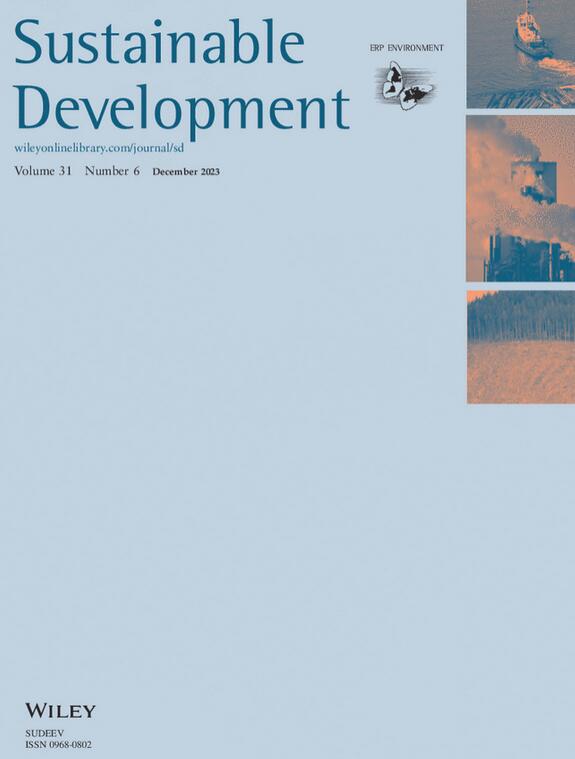Corporate sustainable development strategies: Under the collaborative governance of government and the public
IF 8.2
1区 环境科学与生态学
Q1 DEVELOPMENT STUDIES
引用次数: 0
Abstract
As a problem of multiple failures, effective solutions to environmental problems require overcoming the limitations of single environmental policies and using collaborative governance with multiple regulatory instruments. Based on this, this study examines how collaborative governance between government‐led environmental regulation and public‐participatory environmental regulation can more effectively promote sustainable development strategies for firms. Using data from Chinese listed firms in heavy pollution industries from 2006 to 2019, we constructed a collaborative governance model, and found that (1) government‐led environmental regulation has a significant impact on end‐treatment but no impact on the source treatment of firms; (2) collaborative governance between government‐led and public‐participatory environmental regulation has a significant impact on source treatment but no impact on end‐treatment; (3) mechanism analysis shows that improving long‐term orientation and increasing corporate sustained investments are potential channels of the collaborative governance effect. These findings not only advance our understanding of the policy mix effects of different environmental regulation tools, but also have important policy implications for deepening collaborative governance practices in promoting sustainable development.企业可持续发展战略:在政府和公众的合作治理下
作为一个多重失灵的问题,要有效解决环境问题,就必须克服单一环境政策的局限性,利用多种监管手段进行协同治理。基于此,本研究探讨了政府主导型环境规制与公众参与型环境规制之间的协同治理如何更有效地促进企业的可持续发展战略。利用2006-2019年中国重污染行业上市公司的数据,我们构建了协同治理模型,发现:(1)政府主导型环境规制对企业的末端治理有显著影响,但对源头治理没有影响;(2)政府主导型环境规制与公众参与型环境规制之间的协同治理对源头治理有显著影响,但对末端治理没有影响;(3)机制分析表明,改善长期导向和增加企业持续投资是协同治理效应的潜在渠道。这些发现不仅加深了我们对不同环境规制工具的政策组合效应的理解,而且对深化协同治理实践、促进可持续发展具有重要的政策启示。
本文章由计算机程序翻译,如有差异,请以英文原文为准。
求助全文
约1分钟内获得全文
求助全文
来源期刊

Sustainable Development
Multiple-
CiteScore
17.30
自引率
11.20%
发文量
168
期刊介绍:
Sustainable Development is a publication that takes an interdisciplinary approach to explore and propose strategies for achieving sustainable development. Our aim is to discuss and address the challenges associated with sustainable development and the Sustainable Development Goals. All submissions are subjected to a thorough review process to ensure that our readers receive valuable and original content of the highest caliber.
 求助内容:
求助内容: 应助结果提醒方式:
应助结果提醒方式:


